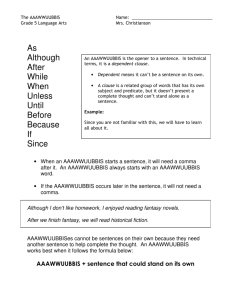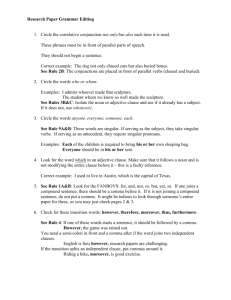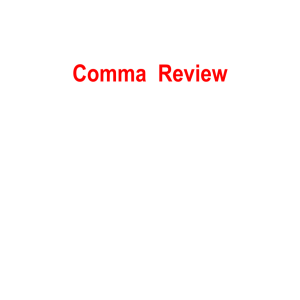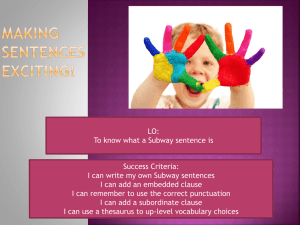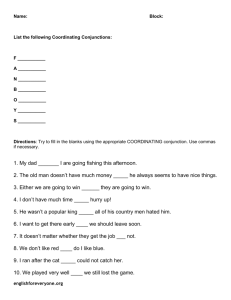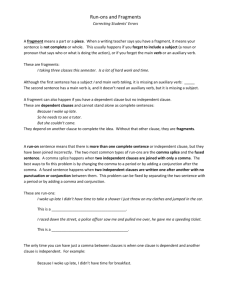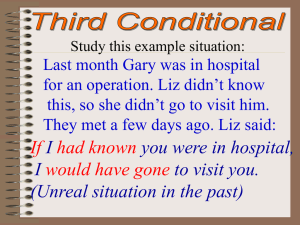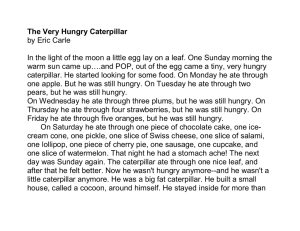The Big 15 - WordPress.com
advertisement
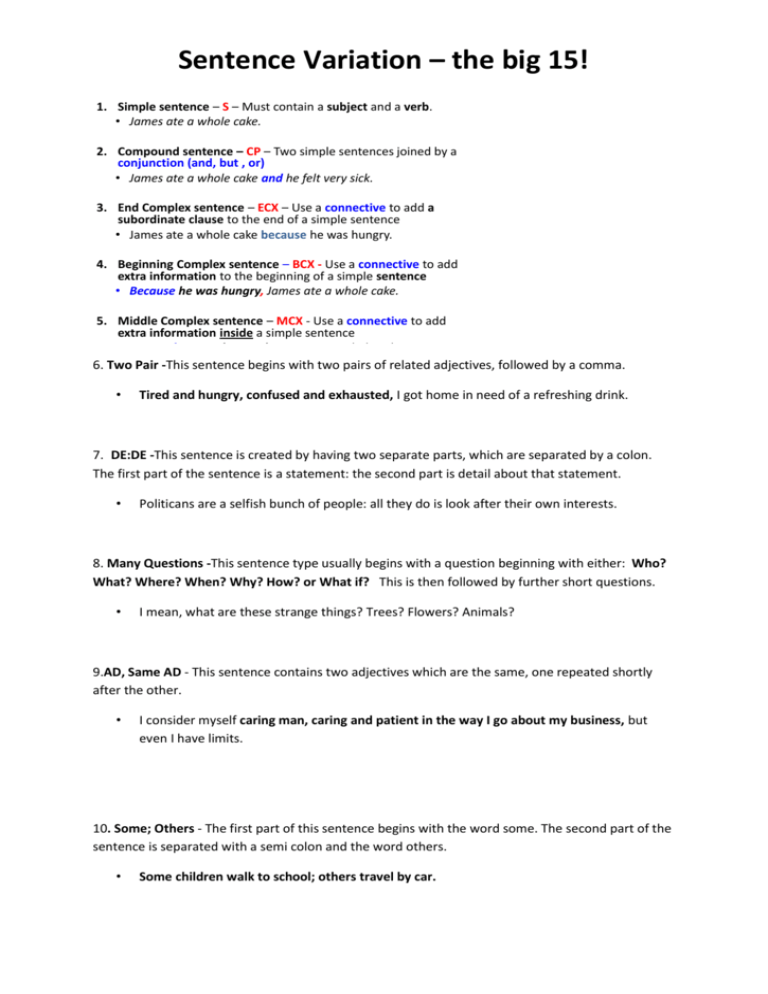
Sentence Variation – the big 15! 1. Simple sentence – S – Must contain a subject and a verb. • James ate a whole cake. 2. Compound sentence – CP – Two simple sentences joined by a conjunction (and, but , or) • James ate a whole cake and he felt very sick. 3. End Complex sentence – ECX – Use a connective to add a subordinate clause to the end of a simple sentence • James ate a whole cake because he was hungry. 4. Beginning Complex sentence – BCX - Use a connective to add extra information to the beginning of a simple sentence • Because he was hungry, James ate a whole cake. 5. Middle Complex sentence – MCX - Use a connective to add extra information inside a simple sentence • James, because he was hungry, ate a whole cake. 6. Two Pair -This sentence begins with two pairs of related adjectives, followed by a comma. • Tired and hungry, confused and exhausted, I got home in need of a refreshing drink. 7. DE:DE -This sentence is created by having two separate parts, which are separated by a colon. The first part of the sentence is a statement: the second part is detail about that statement. • Politicans are a selfish bunch of people: all they do is look after their own interests. 8. Many Questions -This sentence type usually begins with a question beginning with either: Who? What? Where? When? Why? How? or What if? This is then followed by further short questions. • I mean, what are these strange things? Trees? Flowers? Animals? 9.AD, Same AD - This sentence contains two adjectives which are the same, one repeated shortly after the other. • I consider myself caring man, caring and patient in the way I go about my business, but even I have limits. 10. Some; Others - The first part of this sentence begins with the word some. The second part of the sentence is separated with a semi colon and the word others. • Some children walk to school; others travel by car. Sentence Variation – the big 15! 11. The More, The More -Two parts of a sentence separated by a comma and both beginning ‘The more...’ • The more I see people eating with their mouths open, the more I want to scream. 12. Starting a sentence with an ‘ed’ clause – beginning the sentence with a word or clause that ends in ‘ed’ followed by a comma (saddened, shocked...) Depressed, he started to cry. Depressed and unhappy, the children hung their heads. 13. Starting a sentence with an ‘ing’ clause - beginning the sentence with a word that ends in ‘ing’ followed by a comma (Saddening, startling...) Turning over, David went back to sleep. Saddening everyone in the audience, he was voted out. 14. Starting a sentence with a simile – using a simile, followed by a comma, as the first clause of yours sentence – Yawning like a lion, he sat up. 15. Starting a sentence with an adverb – Sadly, he turned away. Unhappily, many people from the country are not starving.
